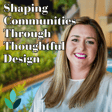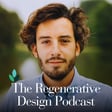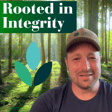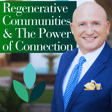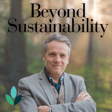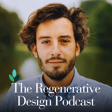
Ep. 10: Kate Fettes - How Soil Health Fuels Global Sustainability
“We're overfed and undernourished or underfed and undernourished, and there's this total imbalance in the food system from start to finish.”
How do we address the pressing global challenges of environmental sustainability and access to healthy land? Could the answer lie in the soil beneath our feet? We’re all witnessing the growing impact of climate change, food insecurity, and environmental degradation on our lives and communities. With these overwhelming problems, it’s easy to feel powerless. But what if we could turn to solutions that start at the most fundamental level—our soil?
Prioritizing soil health can lead to ripple effects that create systemic changes, addressing broader global challenges. From enhancing food production to boosting climate resilience, we’ll discuss practical strategies for cultivating healthier ecosystems and communities, paving the way for a more sustainable and resilient planet.
Kate Fettes is the Director of Policy and Research for Canadian Organic Growers and the cofounder of The Rainmaker Enterprise, an organization dedicated to providing access to safe water in hard-to-reach areas of Africa. She’s also an ambassador for the Institute for Economics and Peace and holds a master's degree in Conflict Security and Development from King’s College in London. Her work is at the forefront of creating solutions for some of the world’s most complex challenges.
Are you passionate about sustainable farming, climate solutions, and making a positive global impact, be sure to check out:
Canadian Organic Growers at COG.ca
Farmers for Climate Solutions at FarmersForClimateSolutions.ca.
The Rainmaker Enterprise at RainmakerEnterprise.org.
Book mentioned: Nourishment by Dr. Fred Provenza.
Explore these valuable resources to further your journey in regenerative design:
Discover more about Paulownia trees and their sustainable potential at https://www.paulownia-la.com/.
Dive into the Twelve Laws of Nature and unlock the secrets of harmonizing with our planet at https://www.12lawsofnature.com/.
Fulfill your garden aspirations with expert guidance from the Garden of Your Dreams masterclass at https://www.gardenofyourdreams.com/.
Ready to take actionable steps towards your dream garden? Book a complimentary 30-minute training session with Matthieu for immediate results: https://calendly.com/garden-of-your-dreams.
